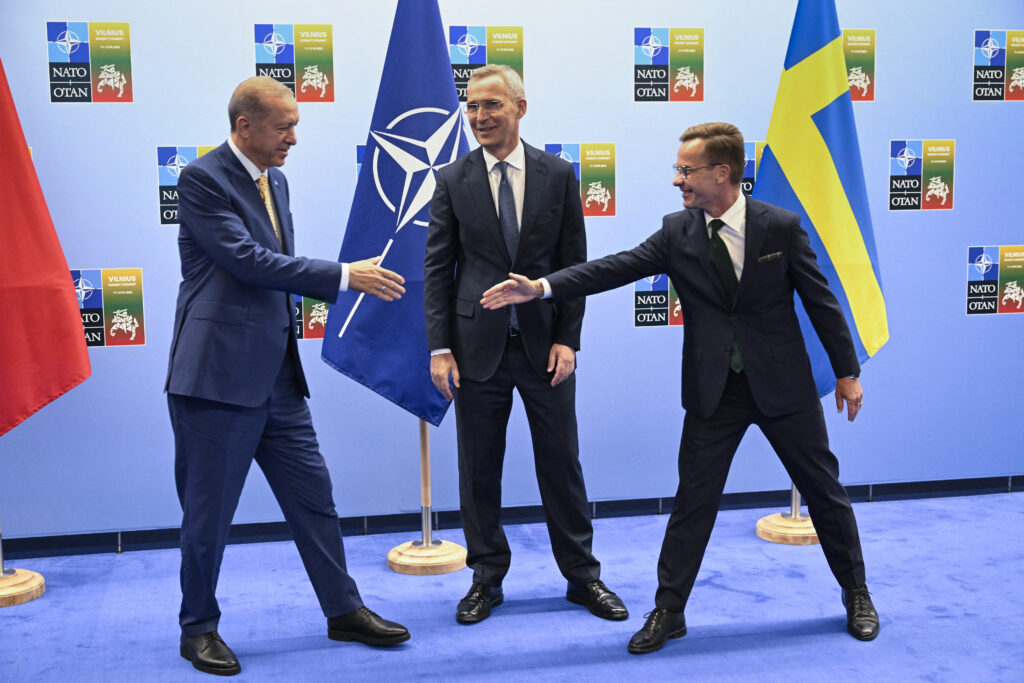Ulf Kristersson, the prime minister of Sweden, has been in power since October 2022 and is still navigating a challenging political environment on the home and foreign fronts. The far-right Sweden Democrats (SD) provide vital legislative support to the coalition government led by Kristersson, the leader of the centre-right Moderate Party, which also includes the Liberals and Christian Democrats. Despite being vital for retaining power, this system is problematic because of the SD’s sway over important policies, especially those pertaining to immigration, law enforcement, and Sweden’s place in the world.
International Tensions: The Crime Wave Restrains Denmark-Sweden Relations
Recently, a spike in violent crime connected to Swedish nationals working across the border has put Denmark, Sweden’s neighbour, under severe pressure. According to Danish authorities, there has been a noticeable surge in major criminal activity, such as bombings and attempted murders, carried out by Swedish youngsters who have been enlisted in organised crime gangs. Danish Prime Minister Mette Frederiksen has expressed agreement with Justice Minister Peter Hummelgaard’s public demand that Sweden assume more accountability for the conduct of its citizens.
Sweden has responded by pledging to strengthen cross-border cooperation, which includes strengthening border controls and stationing Danish police officers in Sweden. Håkan Wall of the National Operations Department, among other Swedish officials, has refuted the idea that Sweden is solely to blame for the crime wave, claiming that although Swedish gangs are extremely well-organised, the issue is regional and calls for cooperation in finding solutions.(DNyuz) (Hammerfall Herald).
Challenges at Home: Energy, Crime, and Coalition Stability
Domestically, growing gang violence is a major problem for Kristersson’s government and has become a major political issue in Sweden. The Sweden Democrats have pushed the government to adopt a more punitive approach to crime, including heavier fines for more serious transgressions. The administration is also committed to strengthening Sweden’s energy infrastructure, especially through the expansion of nuclear power, in order to alleviate the nation’s energy issue, which has been made worse by unpredictability in the world economy.
The far-right views of the Sweden Democrats on immigration and social policy frequently conflict with the more moderate viewpoints of the other coalition parties, therefore Kristersson’s administration has also had to manage dynamics inside the partnership. Because of this friction, there have been worries about the government’s long-term stability, particularly as the Sweden Democrats have a lot of influence over important policy decisions and might potentially cause problems within the coalition (Wikipedia, POLITICO).
Sweden’s Position in the EU and NATO: A Look Ahead
In addition, Kristersson’s administration must handle Sweden’s impending NATO membership alongside Finland on the global scene. Furthermore, the administration must strike a balance between the Sweden Democrats’ anti-EU feeling and the coalition’s overall pro-European stance as Sweden prepares to assume the presidency of the Council of the European Union in January 2024.
Kristersson’s leadership will be essential in determining Sweden’s future as it plays a significant role in European politics and security, both inside the EU and in its new capacity as a NATO member. The government’s handling of these complex local and global issues in the upcoming months will be crucial, and it will surely put Kristersson’s coalition’s fortitude to the test (POLITICO).
Growing Criminality and Disputes with Denmark
The concerning rise in gang-related violence, which has spread to neighbouring Denmark, is one of Kristersson’s top domestic priorities. According to reports, organised crime syndicates have allegedly recruited Swedish teenagers to commit a number of violent crimes, including bombings and attempted murders, across the Danish border. A diplomatic spat between the two Scandinavian countries has resulted from the circumstances, with Danish officials—among them Prime Minister Mette Frederiksen—demanding that Sweden bear greater accountability for the deeds of its nationals.
The Swedish government has promised to step up cross-border cooperation in response to these criticisms, which includes strengthening border security measures and sending Danish police to Sweden. Swedish officials have, however, also underlined that the issue is regional in nature and that collaboration between the two nations is necessary to properly resolve it. Although Swedish gangs are highly organised, Håkan Wall, a senior officer of Sweden’s National Operations Department, has noted that the origins of the crime wave are multifaceted and cannot be entirely linked to Swedish society (DNyuz) (Stockholm Herald).

Kristersson’s Moderate Party, the Christian Democrats, and the Liberals make up a shaky coalition government that he must manage domestically. Although they are not officially a part of the government, the far-right Sweden Democrats (SD) offer crucial parliamentary support that gives them considerable influence over important policy issues, including immigration and law and order.
The harsh views of the SD have greatly affected Kristersson’s government’s approach on crime. The coalition has put out a number of proposals to reduce gang violence, such as toughening up on significant offences and giving police more authority. These actions are a reflection of the SD’s larger focus on law and order, which has resonated with the Swedish public, who are becoming more and more concerned with security and safety.
Nonetheless, tensions within the coalition have also been brought about by the Sweden Democrats’ influence. The more severe stances taken by the SD on immigration and social policy frequently conflict with the other parties’ more moderate stances, creating conflicts that could jeopardise the stability of the administration. Experts have cautioned that the excessive influence of the SD in determining policies may result in internal disputes that could cause the coalition to become unstable (POLITICO; Wikipedia).


